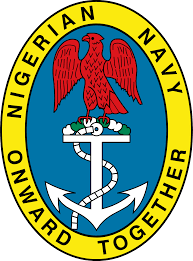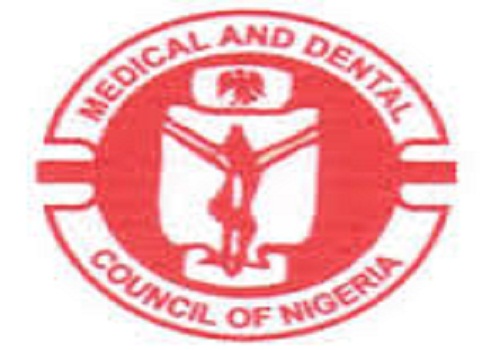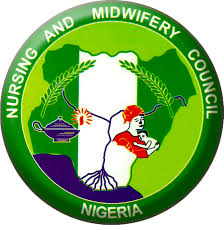We express our profound concern regarding the recent tumult initiated by the NARD concerning the elevation of health profession programs such as Physiotherapy, Pharmacy, and Optometry to doctoral status.
To elucidate and dispel any misconceptions, we shall commence by clarifying for our fellow health practitioners and the general populace that the "Doctor of Optometry Degree"has been in existence since 1987. Optometry was inaugurated in 1972 as a B.Sc. program at the University of Benin, Nigeria, whereas the Doctor of Optometry program commenced in 1981 at Abia State University, with the inaugural cohort of Doctors of Optometry graduating in 1987. Following extensive consultations and adherence to global standards, the University of Benin's Optometric Program was elevated from B.Sc. to OD in 1994. Consequently, all graduates holding a B.Sc. were mandated to transition to the OD designation, and all universities offering Optometry programs were required to confer the OD degree through the National Universities Commission (NUC) and the Regulatory body, the Optometrist and Dispensing Opticians Registration Board of Nigeria (ODORBN).
It is noteworthy that the governing body of Optometrists and Dispensing Opticians (ODORBN) was established in 1989 by the Act of Parliament, Cap 09 of the Laws of the Federation of Nigeria 2004 (formerly known as Decree No. 34 of 1989). This legislation unequivocally delineates the identity of an Optometrist and articulates the scope of practice of the profession, which encompasses:(a) Comprehensive eye examinations to ascertain refractive errors and other deviations from optimal ocular health;(b) Correction of refractive errors utilizing spectacles, contact lenses, low vision aids, and ancillary devices;(c) Rectification of binocularity errors through vision training (orthoptics);(d) Diagnosis and management of minor ocular infections that do not threaten the integrity of the ocular or visual system; and(e) Provision of ocular first aid. This statute categorically refutes the erroneous notion that only Physicians possess the authority to diagnose and manage diseases and ailments within clinical practice.
It is imperative to recognize that the United States of America (USA), Canada, Australia, and other developed nations—who are the pioneers of the Optometric Profession—initiated the OD program nearly a century ago. In fact, in the USA and Canada, one cannot gain admission to an OD program without first obtaining a B.Sc. in one of the fundamental sciences, such as Biology, Anatomy, Chemistry, or Physics, which qualifies an individual for entry into an OD program.
While other nations have progressed from traditional surgical techniques in ophthalmic practice to advanced laser procedures—characterized by their sutureless, low-risk, seamless, rapid, and efficient nature—our counterparts in Nigeria find themselves embroiled in disputes with Optometrists in the public sector over patient consultation precedence, despite clear guidelines established by the World Health Organization. This contention obstructs patients from accessing essential and appropriate eye care services, including comprehensive low vision care, management of binocular vision anomalies/orthoptics, and contact lens fittings. One might ponder, what constitutes accurate diagnosis, management, treatment, and surgical interventions without the support of advanced imaging modalities such as CT, MRI, X-Ray, Ultrasound, and microscopic culture and sensitivity tests, all of which are conducted by Medical Laboratory Scientists and Radiographers. This further dispels the fallacy that only Physicians are equipped to diagnose and manage diseases.
Although the reality is evident, it is increasingly apparent that Physicians in Nigeria, NARD, and their affiliates are not prioritizing patient welfare, but rather pursuing financial gain and power. This is manifest in their demonstration of ignorance regarding global advancements in health practices as they endeavor to diminish the contributions of other healthcare practitioners within the public sector, seeking to undermine their value in the eyes of the government, the general public, and patients and their families, all while remaining reliant on these professionals for patient care and management.
To our General Practitioners (GPs) in Nigeria, resident doctors, and their affiliates, it is essential to remain cognizant of the global advancements within the healthcare system. For instance, in the USA and Canada, the scope of Optometric practice has evolved to encompass laser surgeries and various procedural interventions, as well as the management of brain trauma related to ocular health.
The general public should therefore be informed that Optometry in Nigeria has constituted a six-year program since 1981. The initial three years are dedicated to rigorous preclinical education, while the subsequent three years immerse students in clinical training within hospitals and clinics.
The public should also be apprised that Doctors of Optometry in Nigeria are comprehensively trained and licensed to rectify refractive errors using spectacle lenses, manage patients with low vision, facilitate rehabilitation, address binocular vision anomalies, conduct vision training, and practice contact lens fitting, among other competencies. Furthermore, Doctors of Optometry are trained and licensed to diagnose, manage, and treat ocular diseases utilizing diagnostic and therapeutic pharmacology, engage in community and public eye health initiatives, and provide ocular first aid. Additionally, there exists an established fellowship program that enables Optometrists to enhance their knowledge and expertise through specialization in one of the seven sub-specialties. This specialized training necessitates a minimum of four years, culminating in the conferment of a fellowship in the respective specialty by the Nigeria post graduate College of Optometrists (NPCO).This serves as a clarion call to prioritize patient welfare, advocating for broader access to efficient and affordable eye care services across the nation. This sentiment equally applies to the fields of Pharmacy and Physiotherapy.
Developed nations prioritize the well-being of their citizens over mere titular distinctions. They are acutely aware of their population's needs and the underserved communities requiring access to effective healthcare, demonstrating a fervent desire for advancement and growth. Let us, as Nigerians—particularly policymakers and all healthcare providers—strive towards this objective, enabling us to engage actively with the rapidly evolving global health landscape and its associated challenges.
Dr. Ishaq Muhammed Jamiu Omeiza and Dr. Mohammed Ahmad are residency students of Nigerian Post-Graduate College of Optometrists members of Nigerian Optometric Association, Northern Zone





